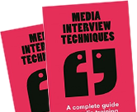Guest blog by Jonathon Howard
Mark Twain’s quote is more pertinent now than ever before. And it does much to support Benjamin Disraeli’s utterance, “There are three types of lies: lies, damned lies and statistics”. Never before have both of these statements rung true with such clarity than around the Remain and Leave campaigns for the EU Referendum.
Both campaigns, and media commentators, propagate the myth that there are rafts of facts and information that will allow every voter reach a considered choice before June 23.
Yet, sadly, the only truth to have emerged from all of the campaigning to date is that no-one really knows what will happen if we stay. And no-one really knows what will happen if we leave.
Thus the choice can never be about the so-called “facts”. Instead, it will be based on each person’s instinctive and entirely individual risk and reward analysis. In fact, those calling for “more information” are doing nothing more than fuelling the hysteria of the respective machines. It adds up to a modern broadcaster’s idea of Heaven – a hapless public being fed half-truths, sensationalist sound bites and scare stories by the politicians.
For instance, we are told that food prices will “rocket” for each household by £220 per year if we leave. That’s £4 per week. Rocket? That’s a pint in the pub or a small glass of wine. We are told that the UK will plummet into a recession for a year and lose tens of thousands of jobs. But then what? It’s a question that no-one will ask because no-one knows the answer. We pay £318m per week to the EU. Really? It’s actually nearer to half of that, and in any case the question should be whether it’s worth it or not.
Where to mark your cross is complicated further by the population split. Half of voters are too young to know what being outside the EU was like, so can’t fathom the risk, while the other half remembers, possibly with rose-tinted spectacles, Britain’s resurgence after the War and its vibrancy and creativity, all of which seems to have been knocked back by the heavy bureaucracy churned out of Brussels. The former, deeply disillusioned about politics, and weighed down by apathy, are much less likely to turn up to vote, while the latter will, like Lazarus, restore themselves from decrepitude to “do their bit for Queen and Country”.
This throws up the question of sovereignty vs federalism. Which matters more? This question lies at the heart of the decision for many, but is hardly discussed as it swerves unnervingly into nationalism, immigration and a whole heap of subjects that are too tough for either campaign to tackle.
Whatever Britain decides on June 23rd brings, the future is impossible to predict. Wouldn’t it be refreshing to see politicians from both sides, and media commentators, admitting that “we just don’t know”?
That’s the one true fact. Yet it’s the one true fact we never hear.


